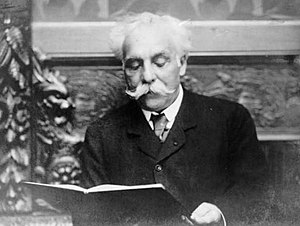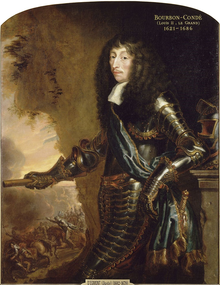p 471 | Eulenberg affair (1907-9): German royal homosexual scandal. Philip, Prince of Eulenburg and (1847-1921), politician, diplomat & confidant of the German Emperor, Wilhelm II, was charged with homosexuality in 1906. Sturrock says: "In the chronology in the novel, the affair is misplaced, since Charlus is alluding to it some five years before it occurred."
p 471 | the "mediatized" families appear in the 2nd section (Durchlaucht) of the Almanack de Gotha, while the 1st section is reserved for the genealogies of Europe's royal houses. The Durchlaucht families were recognized as being equal in birth to the royal families, and intermediate in rank between them and the merely princely families of the Almanack's 3rd section. (Sturrock note)
p 472 | Commercy (link has Proust reference)
p 477 | Monsieur (from Middle French mon sieur, literally "my lord") is an honorific title that was used to refer to or address the eldest living brother of the king in the French royal court. The pretensions of the Croy family are noted in Proust's major historical source, the Memoirs of the Duc de Saint-Simon. (Sturrock note)

p 477 | The Duchy of Aumale
p 477 | Passavant: roughly, "go forward" (from the verb passer (to pass) & avant (before, in front of). (Sturrock note)
p 478 | Prince of Savoy-Carignano; "Prince of Hanover" refers to the Elector of Hanover, who became King George I of England in 1714. (Sturrock note)
p 478 | "Maecenas atavis edite regibus!": a quotation from Horace, Odes, bk. I, meaning "Maecenas, descended from royal ancestors!" (Sturrock note) From Wikipedia: "His name has become a byword for a wealthy, generous and enlightened patron of the arts." Which is how Charlus makes that compliment to Mme Verdurin.
 |
| Gabriel Fauré |
p 479 | ...Sonata for piano and violin: Sonata No. 1 for Violin and Piano, Opus 13, by Fauré, (listen here) first performed in 1875.
p 480 | César Franck (1822–90) was a Belgian composer, pianist, organist & music teacher who worked in Paris.
p 481 | Giacomo Meyerbeer (born Jacob Liebmann Beer, 1791–1864) was a German opera composer of Jewish birth who has been described as perhaps the most successful stage composer of the 19th century, with his grand opera style achieved by merging German orchestra style with Italian vocal tradition. (Wiki). Robert le diable was a Romantic opera of 1831, thus rather primitive musically compared with Debussy. (Sturrock)
p 481 | Domenico Scarlatti (1685-1757), known for his harpsichord music. (Sturrock)
p 482 | Ephemerids=mayflies
p 482 | Asnières & Bois-Colombes: suburbs of Paris

p 483 | Rosicrucian (Gestes esthétiques): fin-de-siècle aesthetic movement in France, comparable to the "deliquescent" movement in poetry referred to earlier (not referring to 17th century German illuminati) (Sturrock)
p 483 | etheromaniac= person addicted to using ether as a drug.
p 483 | The Great Condé: Louis II, Prince de Condé (1621-86), French general from the house of Bourbon. Leader of the so-called Fronde des Princes, or revolt against the regime of Cardinal Mazarin during Louis XIV's minority.
